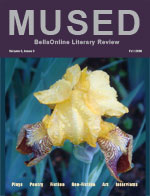The Luckiest Man in Bavaria
Thomas J. Robidoux
In the year of our Lord 735, Bavaria was wracked with famine. Hugbert, son of Theudbert, sat upon the throne of this unhappy duchy. Duke Hugbert’s name was oft invoked to add authority to the waning power of our present Lord, The Baron of Litchtenfels, who declared our little Swabian village of Neu-ulm with its two hundred souls to be his protectorate. The Baron demanded grain as payment for taxes as we flirted with starvation. He claimed this was to support the soldiers who protected us from marauders. There has been no serious marauding for generations and the cost of the Baron’s protection was far more threatening than a few highwaymen and scoundrels.
They called themselves Knights and Vassals; but they were drunken ruffians with a sword and a horse is all, despised by most of the villagers for their arrogance. The contingent of fourteen men including the Baron’s heir spent most of their days in the beer hall dicing.
I was but a lad of twelve years when they came at the end of that pitiful harvest. We held one of the largest farms in the village. The land was handed down through generations that reached back into antiquity. The Baron’s assertions of nobility went back only two hundred and fifty years, my father told us around the winter´s fire until the consumption took him this spring, God rest his soul.
The Baron’s son led five men into the dusty barnyard, two more than usual, because of their fear of my elder brother. Hans was almost six feet tall and unnaturally strong. The soldiers knew him from the beer hall where he had fought with some of the biggest bullies in the Lord’s band. He never lost; besides his great strength he was a quick, natural athlete who knew not fear. Being thrashed by a peasant was so humiliating most of the soldiers avoided provoking him.
Hans stood in front of the barn with a stout walking staff in his hand. His countenance expressed menace even with a smile on his face. “Good day to you, Lord Felix. How can I be of service?”
“There is a trivial matter of additional taxes,” Felix said.
“We have already given our full obligation to both the Baron and the Bishop. We have none to spare lest we starve,” Hans said calmly.
“His Lordship the Baron has decreed that the obligation shall be increased by a third.”
“That cannot be! We will be hungry as it is; we shall starve if we submit to such an illegal increase.”
“Be silent you ungrateful knave! Duke Hugbert himself authorized the increase.”
Felix’s hand was upon his sword and the air crackled with tension. Several of his men fingered their swords and looked to Felix for direction. Fear for my brother’s life drove me to cry out. “Perhaps m’Lord would settle for one wagon of grain?”
“Impossible child!” he shouted, but his hand was off his sword and his face showed relief.
“Would you and your men do us the honor of taking refreshment?” I asked.
“It would be good to get the dust out of our throats and perhaps we could settle for five wagons of grain instead of the six the scribe requires,” he said waving a scroll.
“Take their horses to water and bring us some beer,” Hans called to my mother and three sisters who were watching from our door.
The table and benches brought from the house held pitchers of beer and wooden cups. Felix and Hans stood apart to negotiate. The bitter beer flowed and the inevitable dice game began. I took it upon myself to replenish their cups so as to listen to their exchange.
“If I give you five wagons of grain my people will starve and I would be derelict in my duty.”
“If you do not give it to us then we shall take it,” Felix said somberly. He was not a cruel man by nature and enforcing these draconian demands brought him no pleasure.
“Then we shall have to stop you,” Hans said simply.
“You and the boy? You know the hirelings will not stand by you. You and the boy shall die.”
“If you take our crop then we shall die anyway.”
“I have not the luxury of choice in this matter,” he said with a touch of sadness.
I ran to my brother and whispered in his ear. He looked at me and smiled and said, “I will do as you say; for truly we have nothing to lose.” He turned to Felix and challenged him to a game of dice.
“A game of dice?”
“Yes. Twice or naught. One game only,” Hans said.
“If the dice favor me then you will pay twelve wagons of grain?”
“Nay, only ten, for have you not agreed to ask for only five?”
“Aye, ten wagons if the dice favor me and none if they favor you,” Felix smiled; he was infamous for his love of gambling.
Hans shook the dice with both hands and threw them onto the soft gaming cloth hoping to roll a seven that would win the game. They showed a two and a three.
“Five is your point,” said one of the soldiers.
He repeated the ritual and threw the dice with his eyes closed. If he rolled a five he would win and if he rolled a seven he would lose; any other number and he would roll again.
“Six, no point!” a voice shouted.
Again the toss, this time with his eyes wide open. One die showed a three and just before the second die stopped a hand flashed across the cloth and grabbed the dice. A shocked silence enveloped the group.
Felix shook the fist that held the dice and said, “Alas, Hans of Neu-ulm, you must be the luckiest man in all Bavaria.”
“Yes my Lord, that is plain to see,” he said softly.

